
The World Cup final is the pinnacle, the biggest fixture in the football calendar.
It happens only once every four years and even after 22 editions of the men's tournament, it has been won by a select few national teams.
The tournament first took place in Uruguay and was won by the hosts. Most recently, it was played in Qatar, with Argentina crowned champions for the third time.
Here, from Uruguay 1930 to Qatar 2022, a look at the stadiums where the finals were played...
20. Stadio Nazionale, Rome (1934)
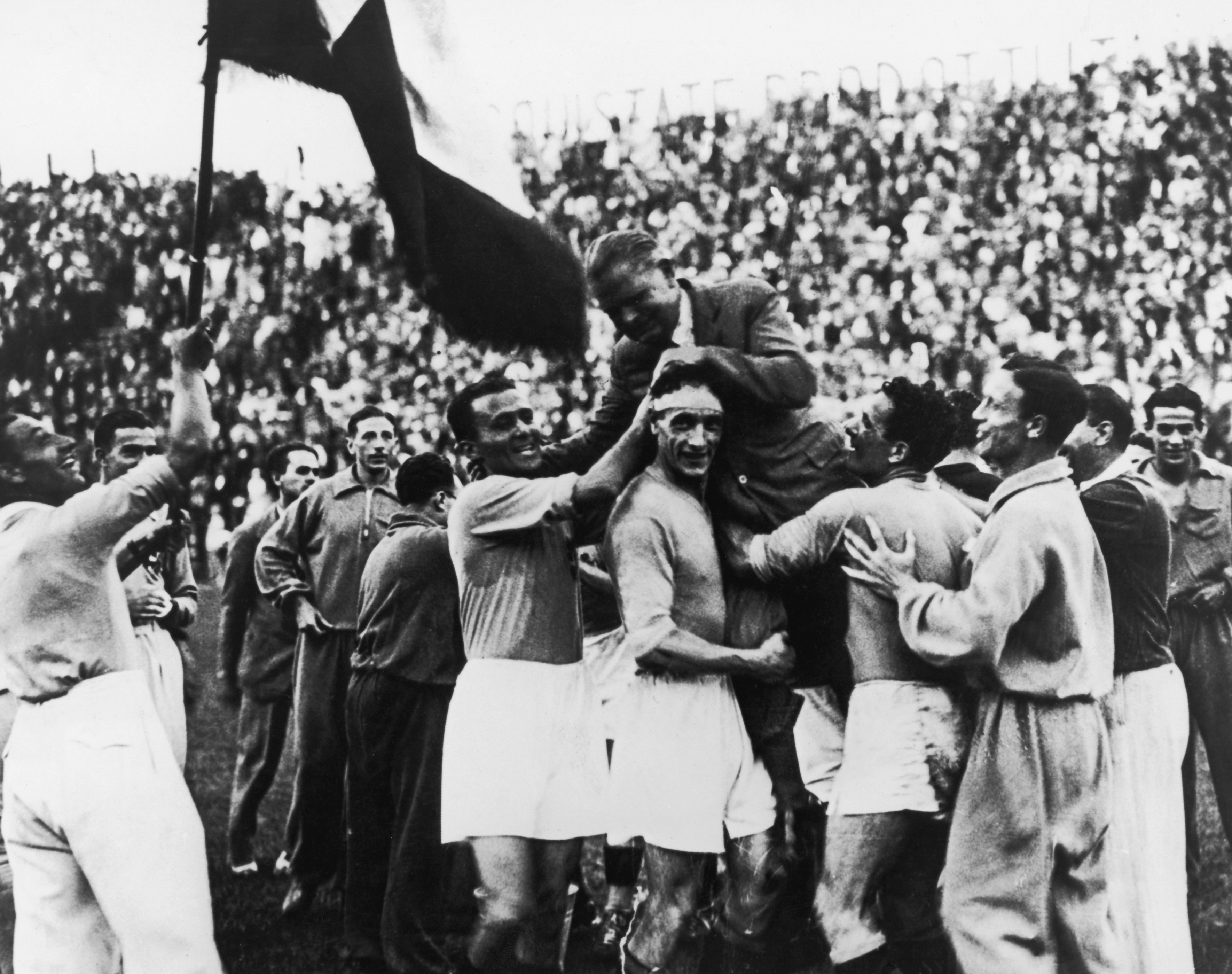
Italy's first World Cup win came on home soil in 1934, when the Azzurri beat Czechoslovakia 2-1 after extra time in the final.
Rome's Stadio Nazionale PNF (National Fascist Party) hosted three matches, including the final, which was watched by 55,000 fans. The stadium was demolished in 1953 and replaced by the Stadio Flaminio in 1957.
19. Stade Olympique de Colombes, Paris (1938)
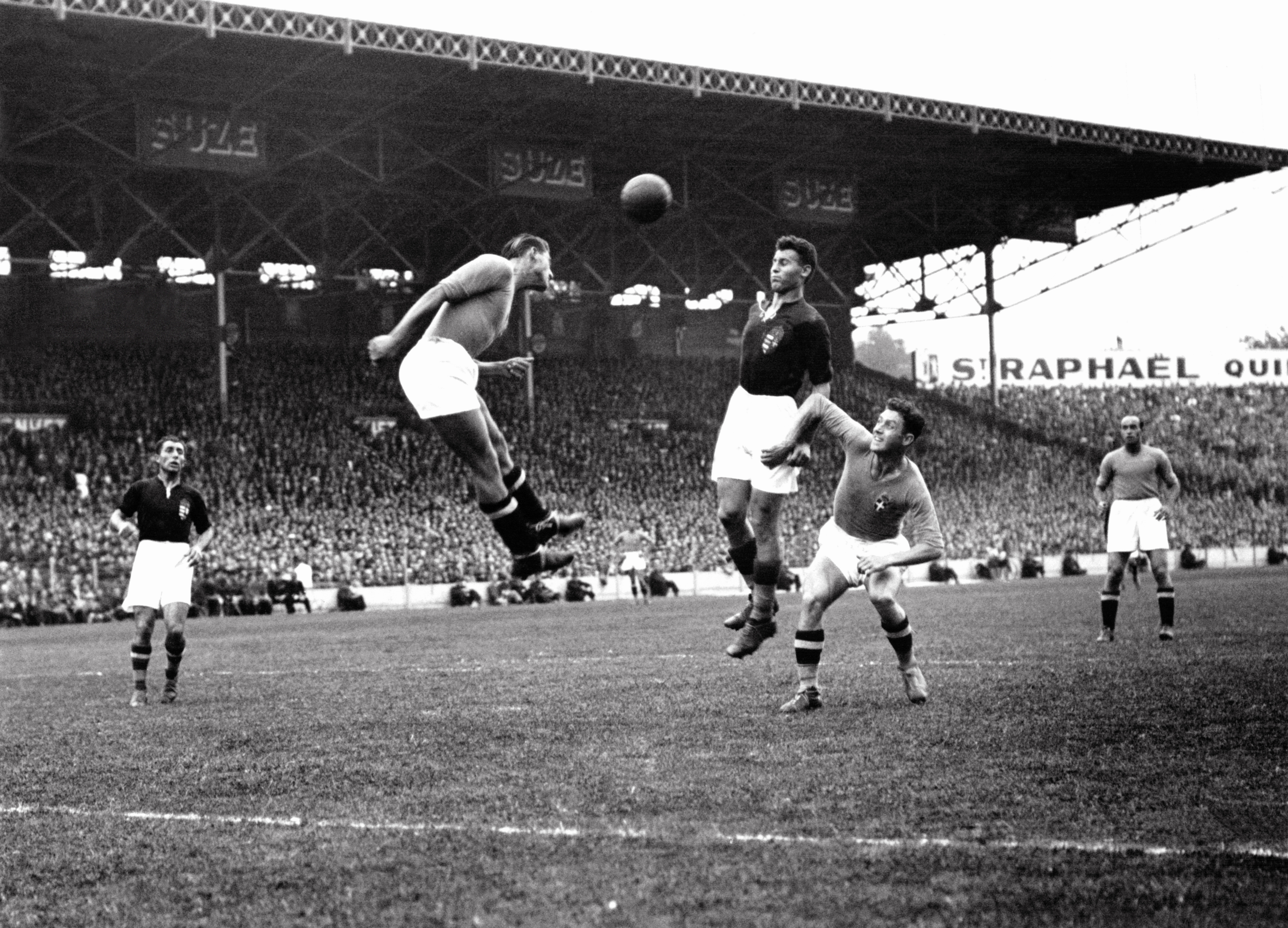
Italy beat Hungary 4-2 in the 1938 World Cup final to retain the trophy they had won four years earlier in Rome.
The tournament was played in France and the final took place at the Stade Olympique de Colombes in Paris, with 45,000 fans present. The stadium still exists today and was used for field hockey at the 2024 Olympic Games.
18. Råsunda Stadium, Solna (1958)
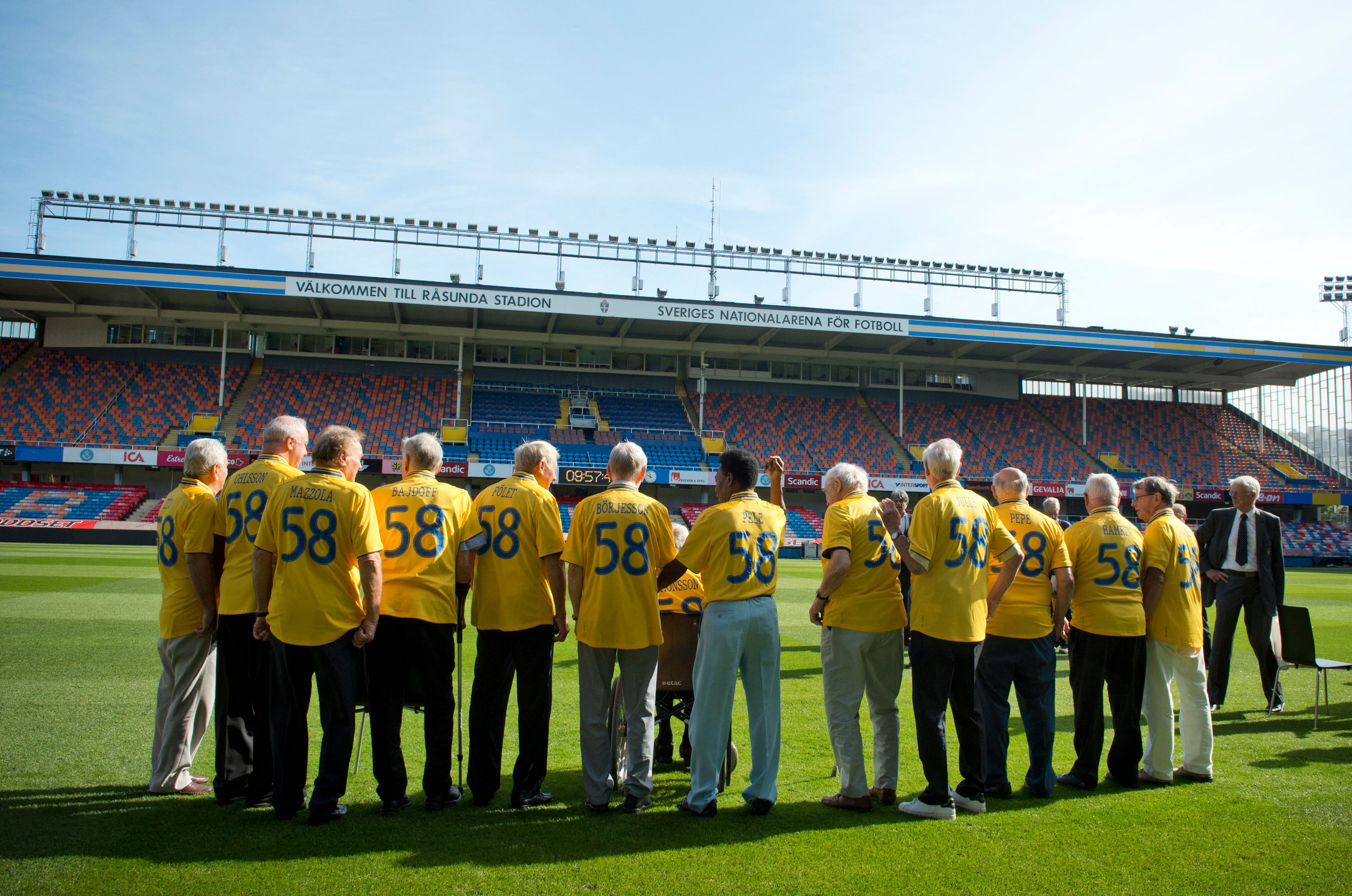
After missing a golden opportunity to win a first World Cup on home soil in 1950, Brazil finally got their hands on the trophy eight years later.
Inspired by a 17-year-old Pelé in attack and the brilliance of Garrincha on the wing, Brazil thrashed hosts Sweden 5-2 in the final at the Råsunda Stadium in Solna, part of the Stockholm municipality. Just under 50,000 fans were present at the ground, which was demolished in 2013 to make way for a more modern stadium.
17. Wankdorf Stadium, Bern (1954)
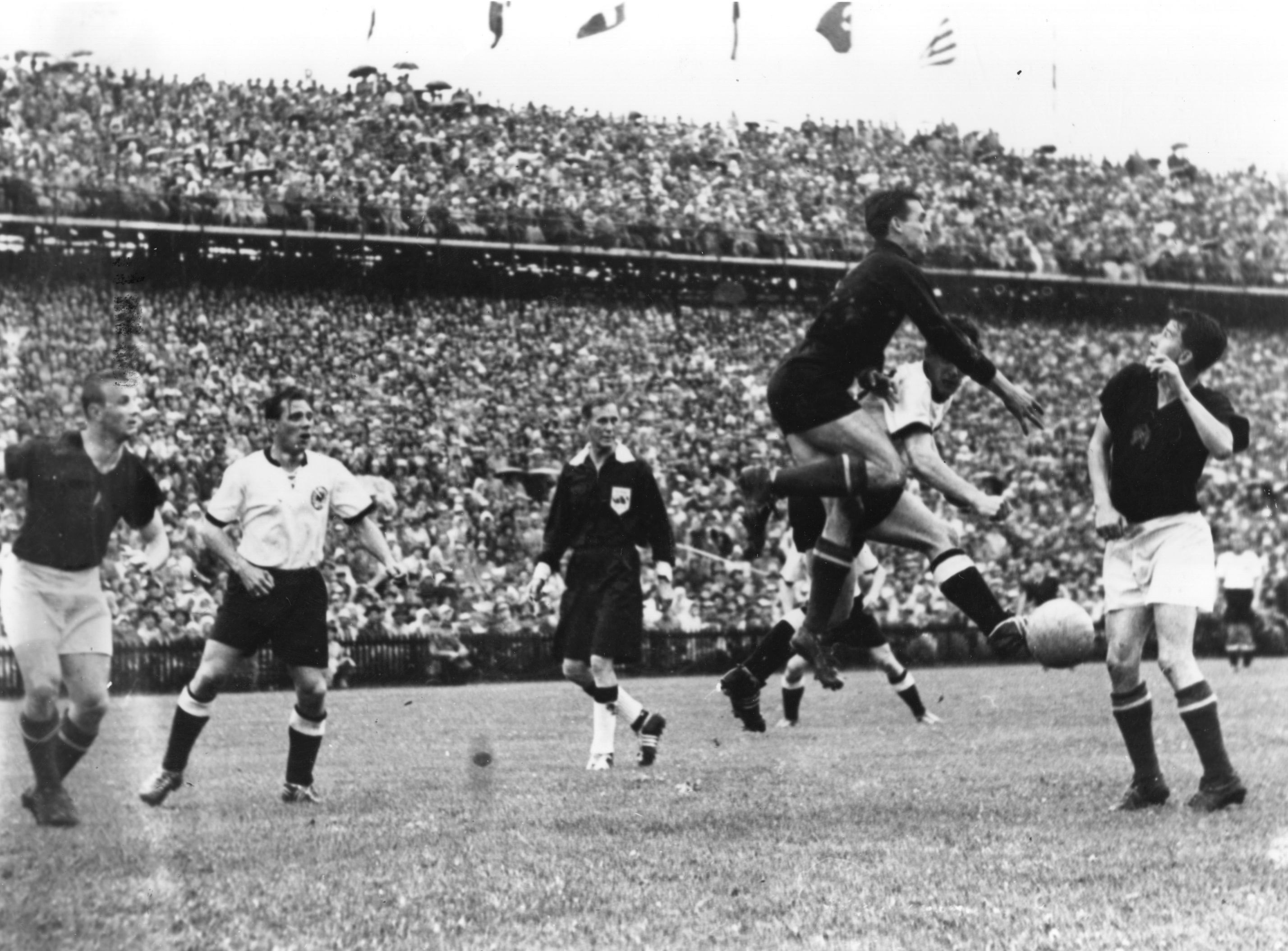
Hungary were big favourites heading into the 1954 World Cup final against West Germany, with the Mighty Magyars having won the teams' group game 8-3 earlier in the tournament.
But the final was a different story as West Germany won 3-2 at the Wankdorf Stadium in front of over 62,000 fans in a match which became known as The Miracle of Bern.
16. Olympiastadion, Munich (1974)
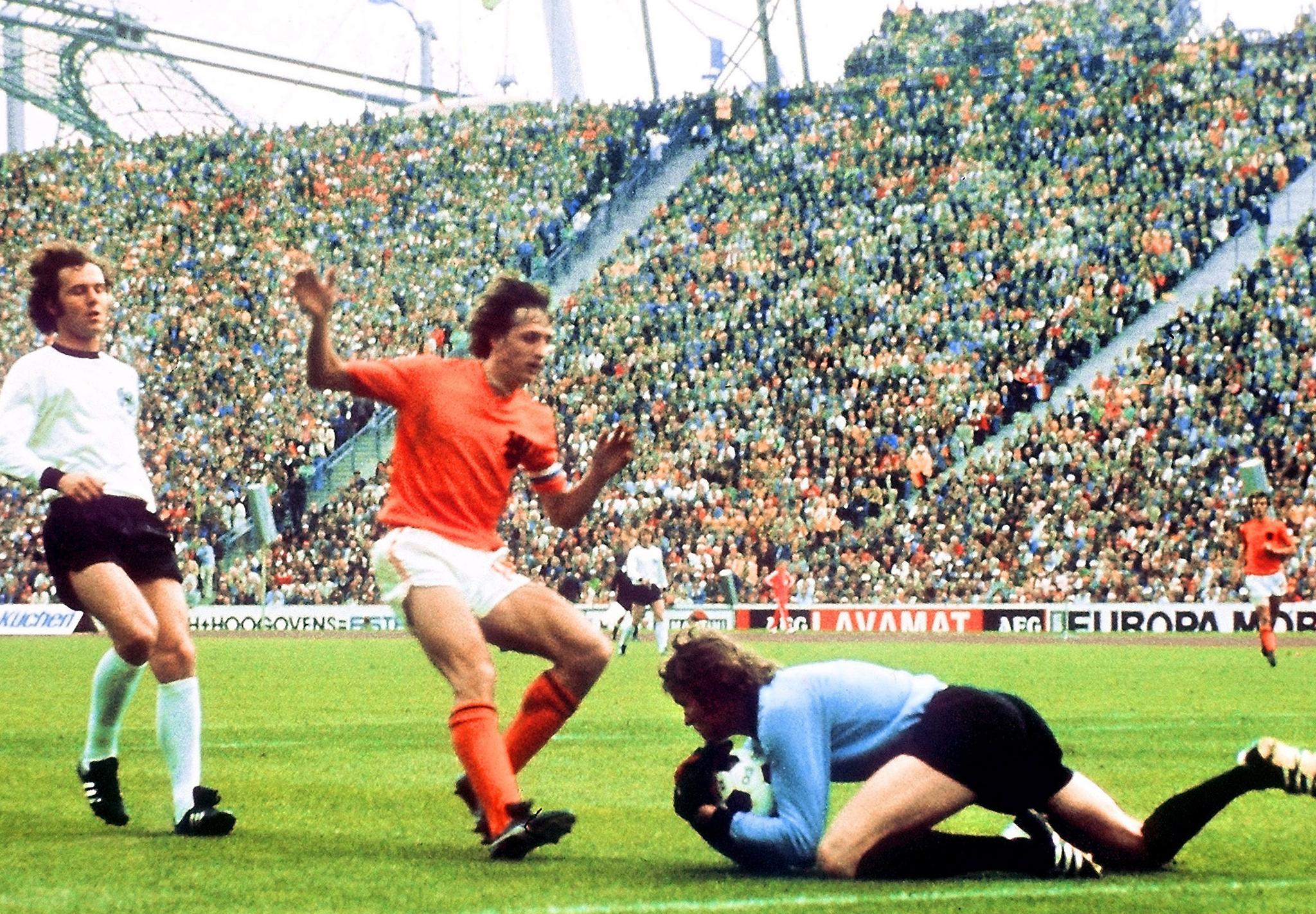
Two decades on from their first World Cup win, West Germany collected their second trophy by beating the Netherlands 2-1 at Munich's Olympiastadion in the 1974 final.
The West Germans went behind to a Johan Neeskens penalty after just two minutes, but came back into it with a Paul Breitner spot-kick and edged out the Dutch thanks to a Gerd Müller effort late in the first half as just over 75,000 fans watched from the stands.
15. Estadio Nacional, Santiago (1962)
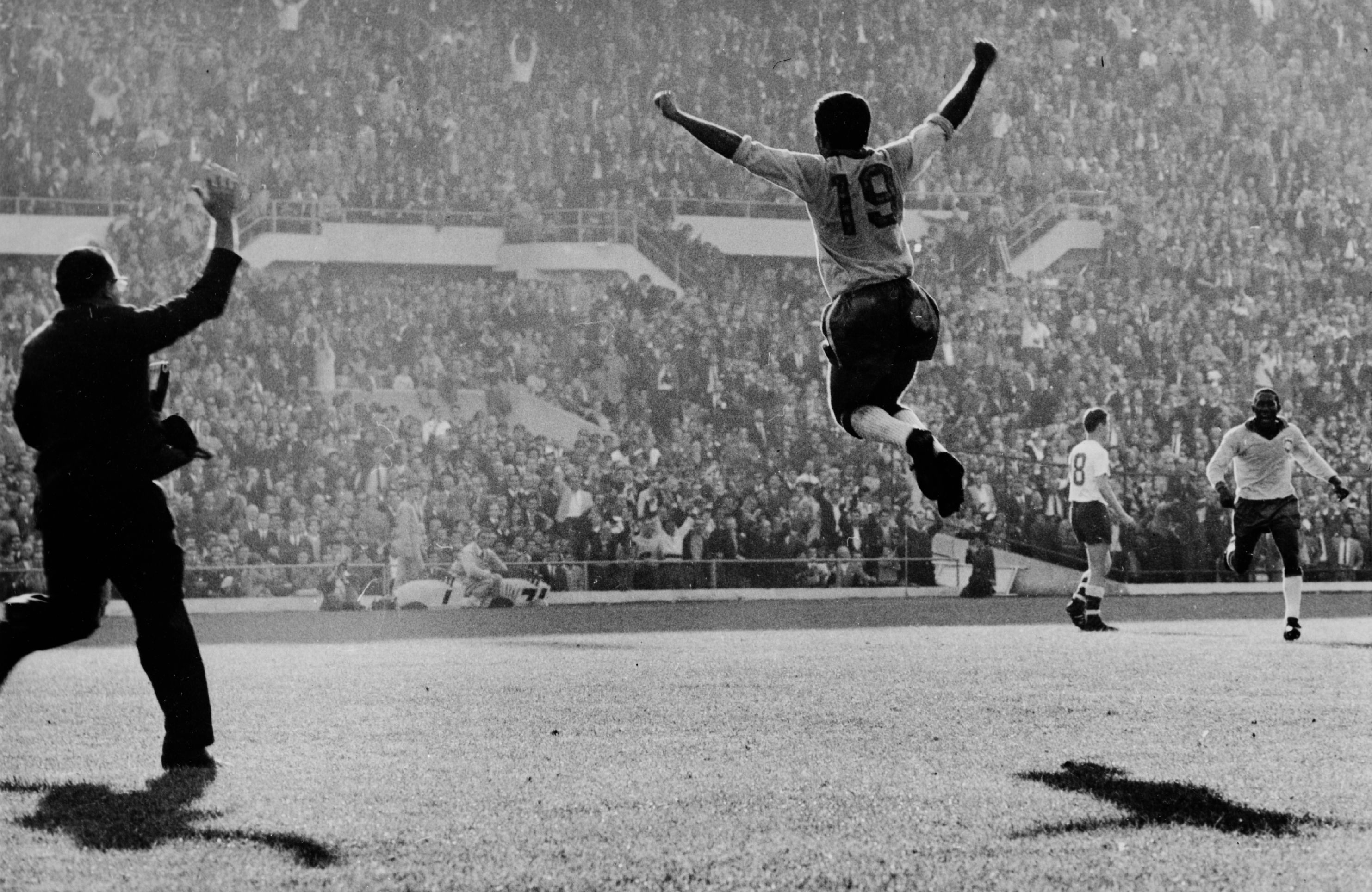
Brazil beat Czechoslovakia 3-1 in front of more than 68,000 fans at the Estadio Nacional in Santiago to retain the World Cup in 1962.
Despite the absence of Pelé through injury in the final, Brazil won comfortably in the Chilean capital and became the first nation to claim back-to-back titles since Italy in 1934 and 1938.
14. Estadio Centenario, Montevideo (1930)
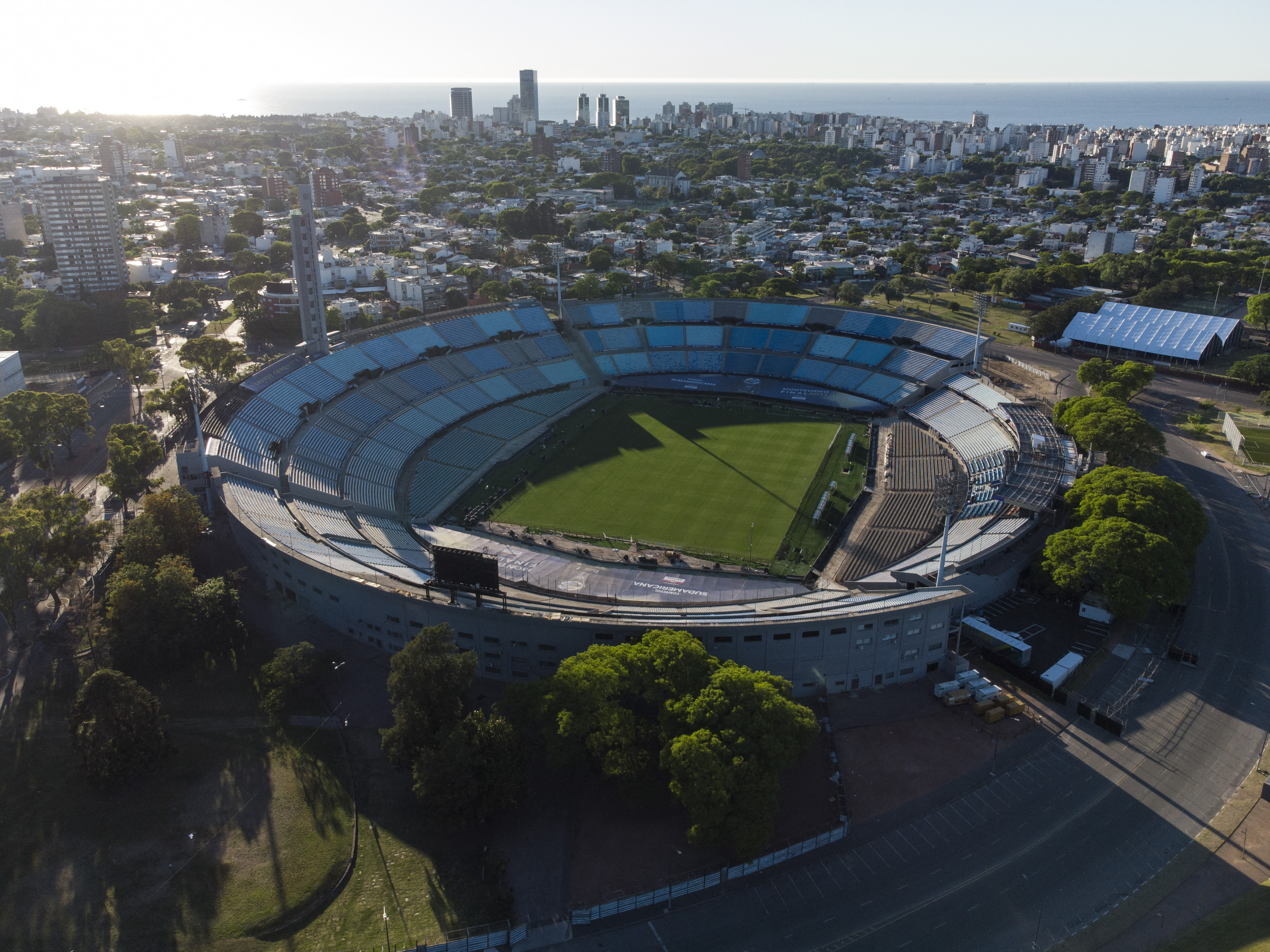
The first-ever World Cup was held in Uruguay and the tournament was won by the hosts, 4-2 victors in the final against Argentina.
Montevideo's Estadio Centenario, built especially for the tournament, was the venue for the final as over 68,000 watched the Celeste take the trophy.
13. International Stadium, Yokohama (2002)
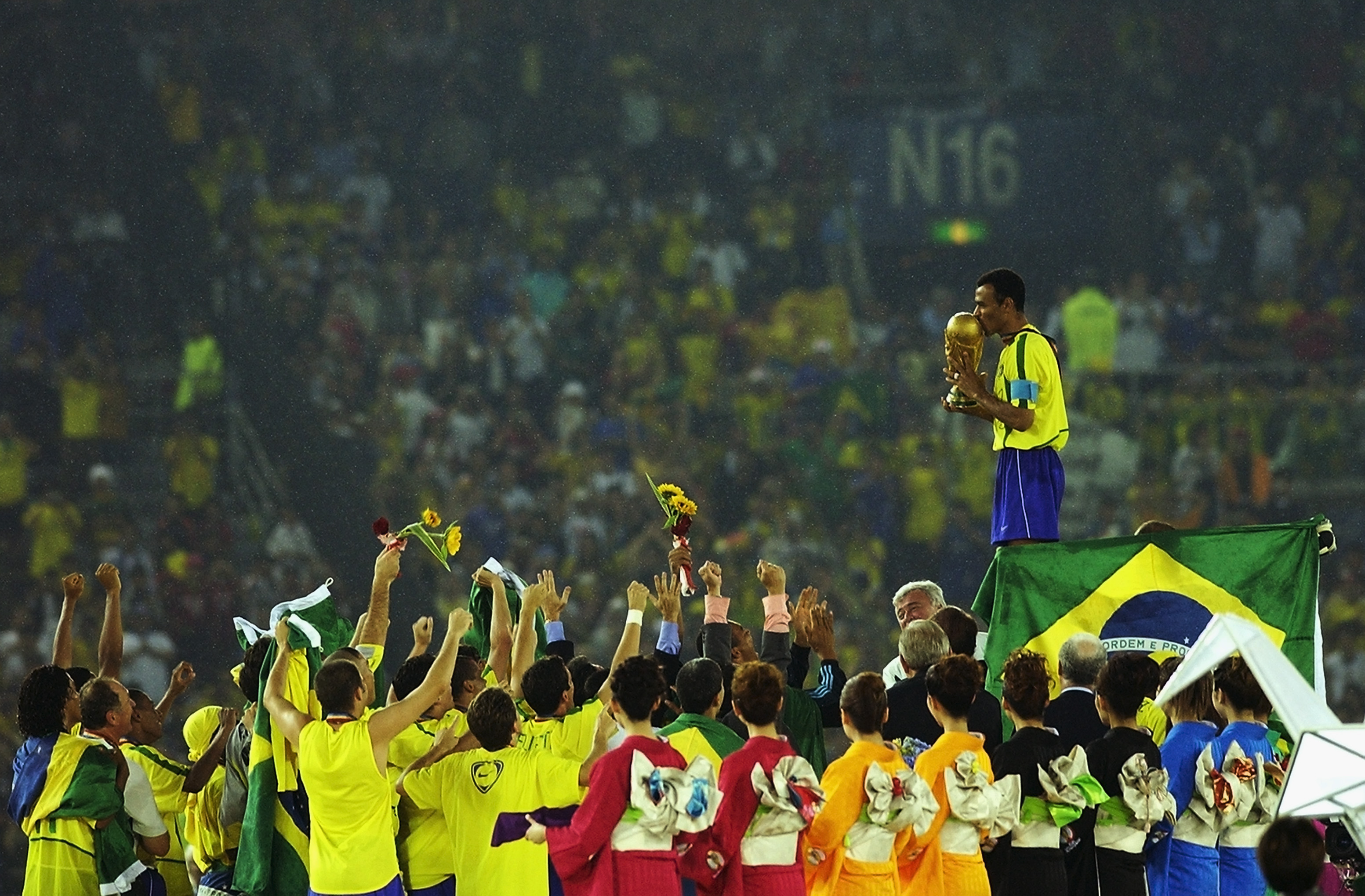
The 2002 World Cup took place in Japan and South Korea and Yokohama's International Stadium was the venue for the final.
In it, Ronaldo scored both goals as Brazil beat Germany 2-0 to win the trophy. It was the nations' first-ever meeting at a World Cup and a fifth title for the South Americans in front of just over 69,000 fans.
12. Luzhniki Stadium, Moscow (2018)
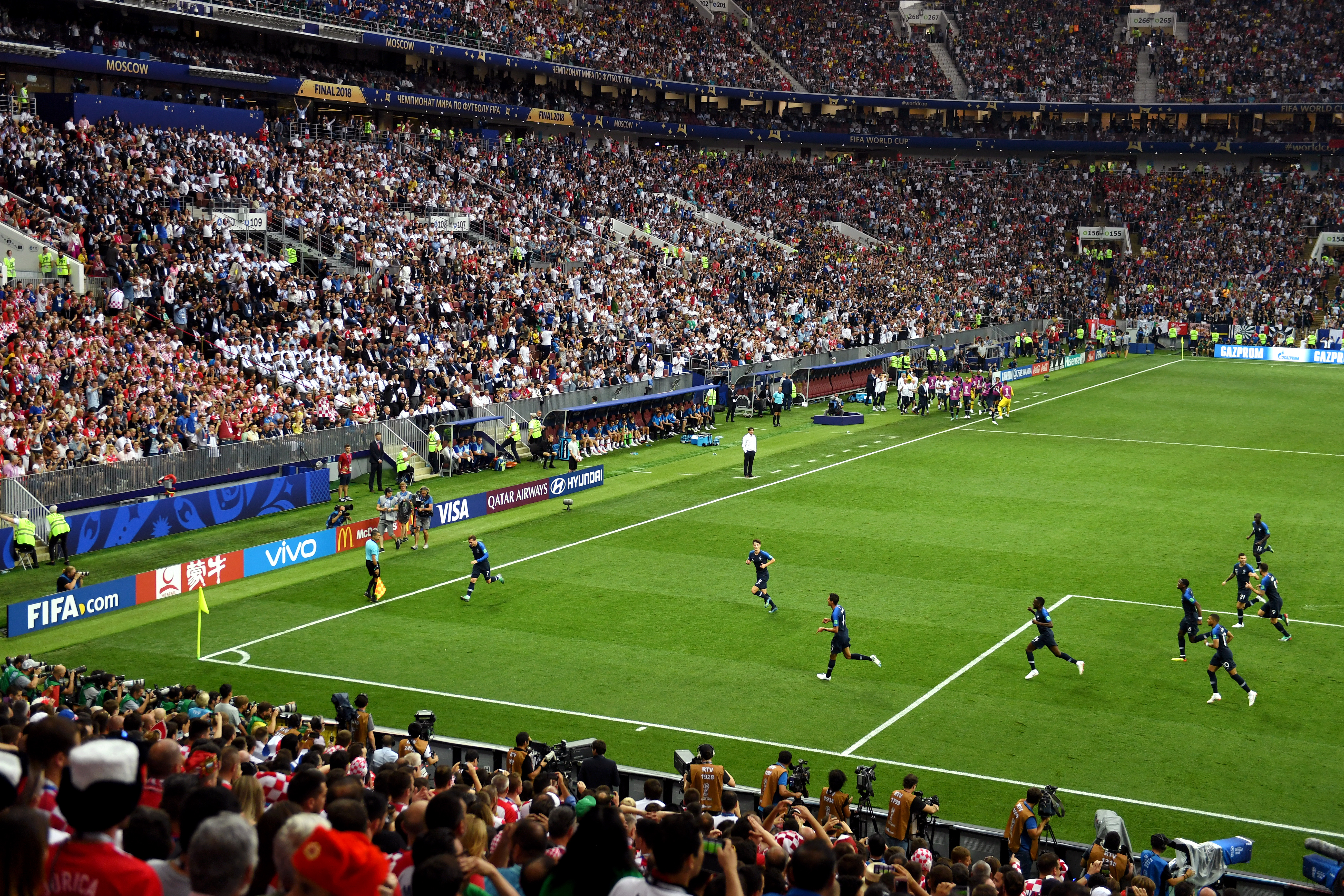
France beat Croatia 4-2 at Moscow's Luzhniki Stadium to win the 2018 World Cup final.
Les Bleus claimed the trophy for a second time, two decades after their maiden World Cup win, in front of a crowd of just over 78,000 in the Russian capital.
11. Estadio Monumental, Buenos Aires (1978)
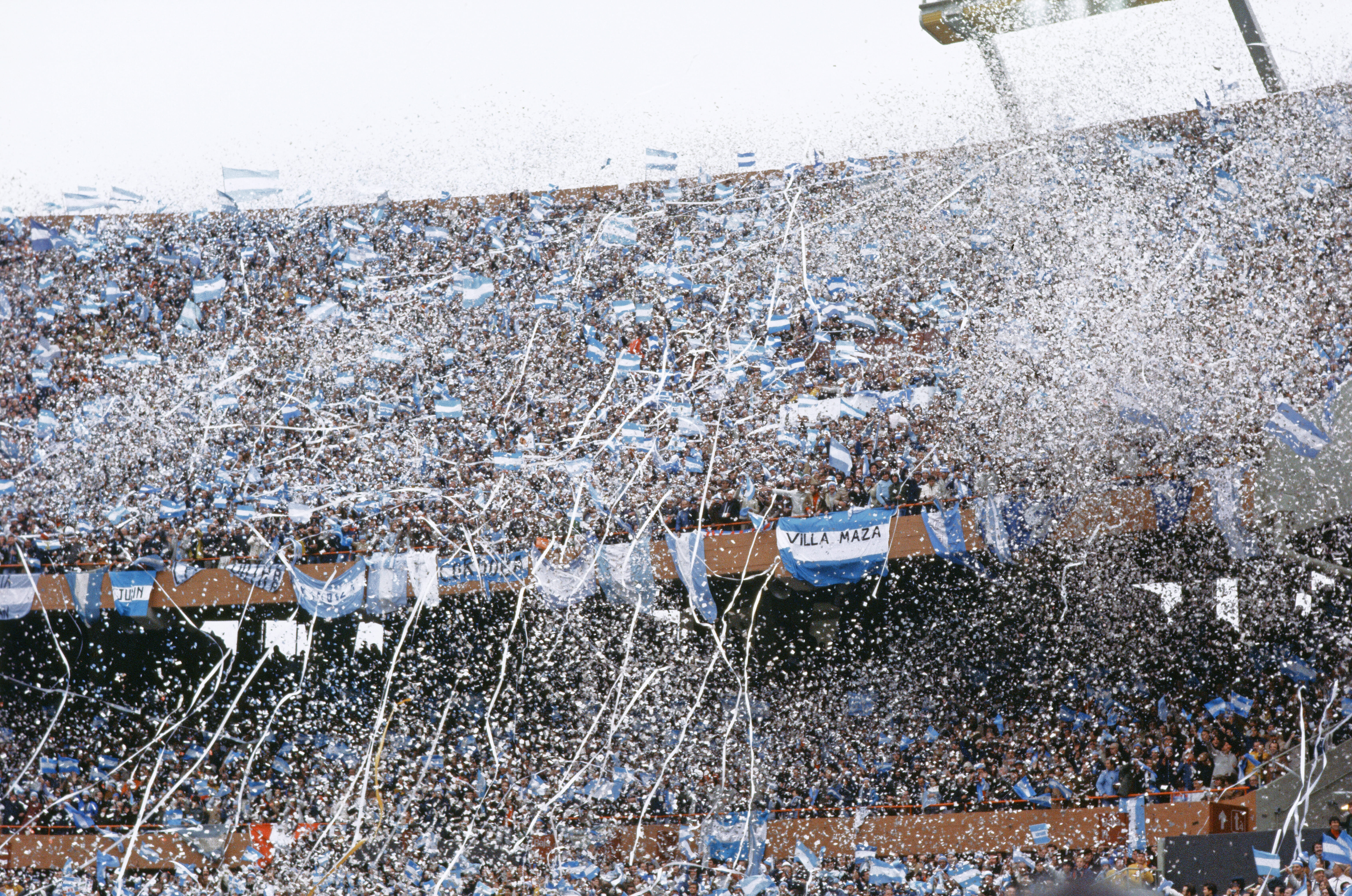
Argentina's first World Cup win came on home soil at the 1978 tournament as the Albiceleste beat the Netherlands 3-1 after extra time at River Plate's Estadio Monumental.
César Luis Menotti's side prevailed thanks to two goals from Mario Kempes and another from Daniel Bertoni, with over 70,000 fans present and the pitch covered in ticker tape and confetti in spectacular scenes. The tournament was overshadowed by the host nation's military dictatorship, however, amid reports of state torture and the disappearance of political opponents.
10. Stadio Olimpico, Rome (1990)
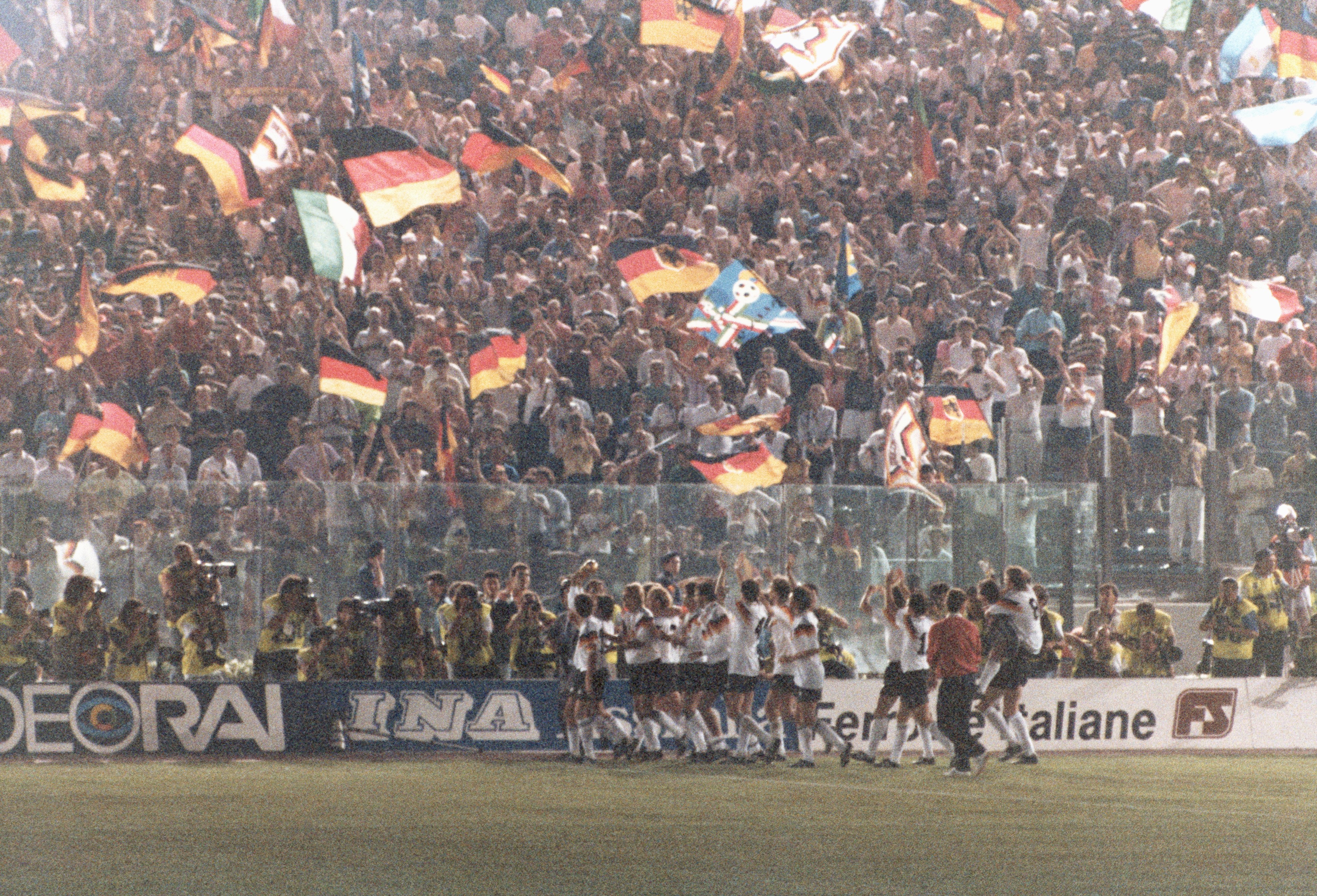
After losing in the 1982 and 1986 finals, West Germany went one better in 1990 with a 1-0 victory over defending champions Argentina at Rome's Stadio Olimpico.
West Germany became the first team to appear in three successive World Cup finals in men's football and took the trophy thanks to Andreas Brehme's late penalty in front of a crowd of over 73,000.
9. Olympiastadion, Berlin (2006)
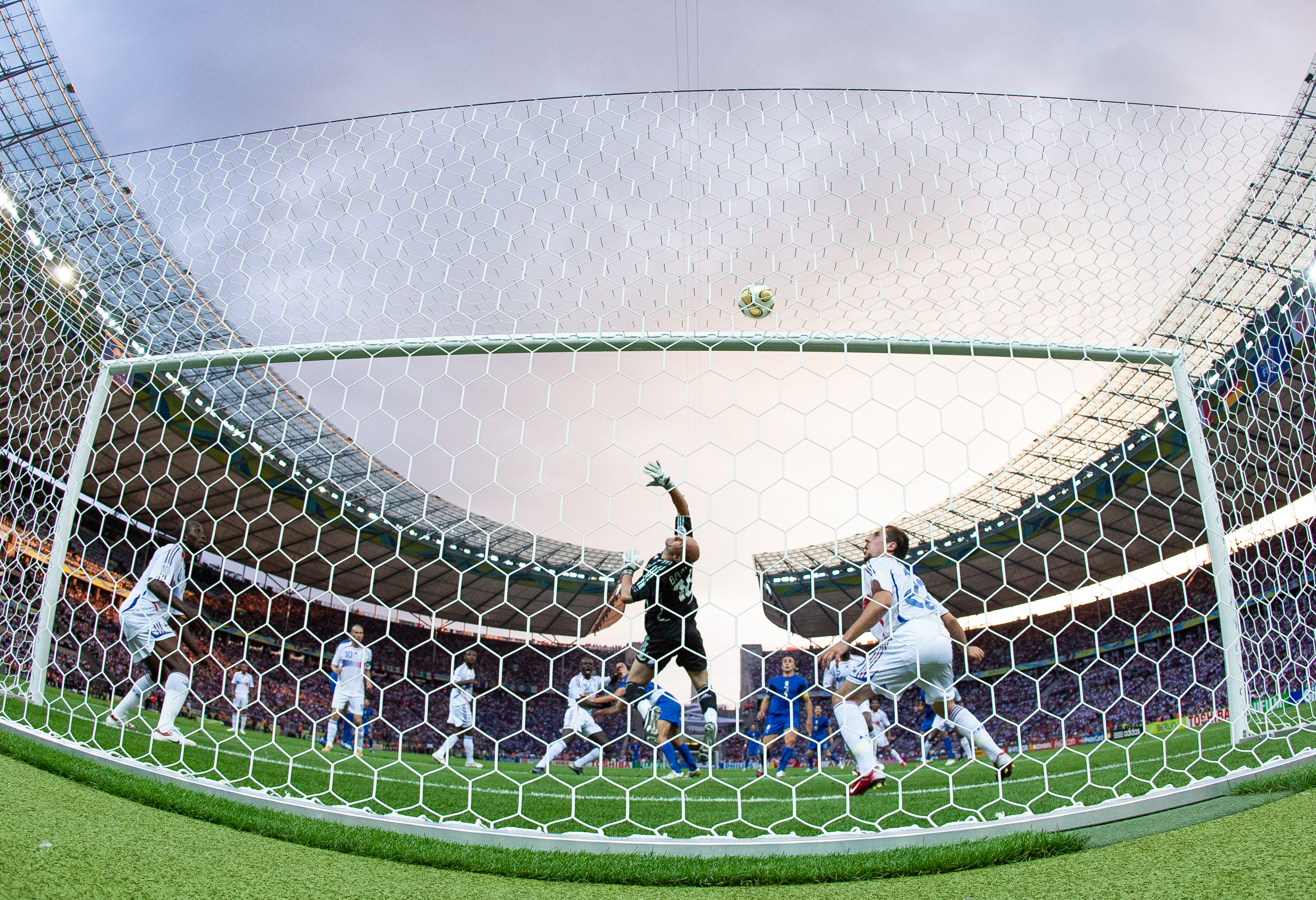
Berlin's Olympiastadion was designed and built for the 1936 Olympic Games in the German capital.
Used for just three group games at the 1974 World Cup in West Germany, the iconic venue hosted the final in 2006 as Italy beat France on penalties in front of 69,000 fans.
8. Rose Bowl, Pasadena (1994)
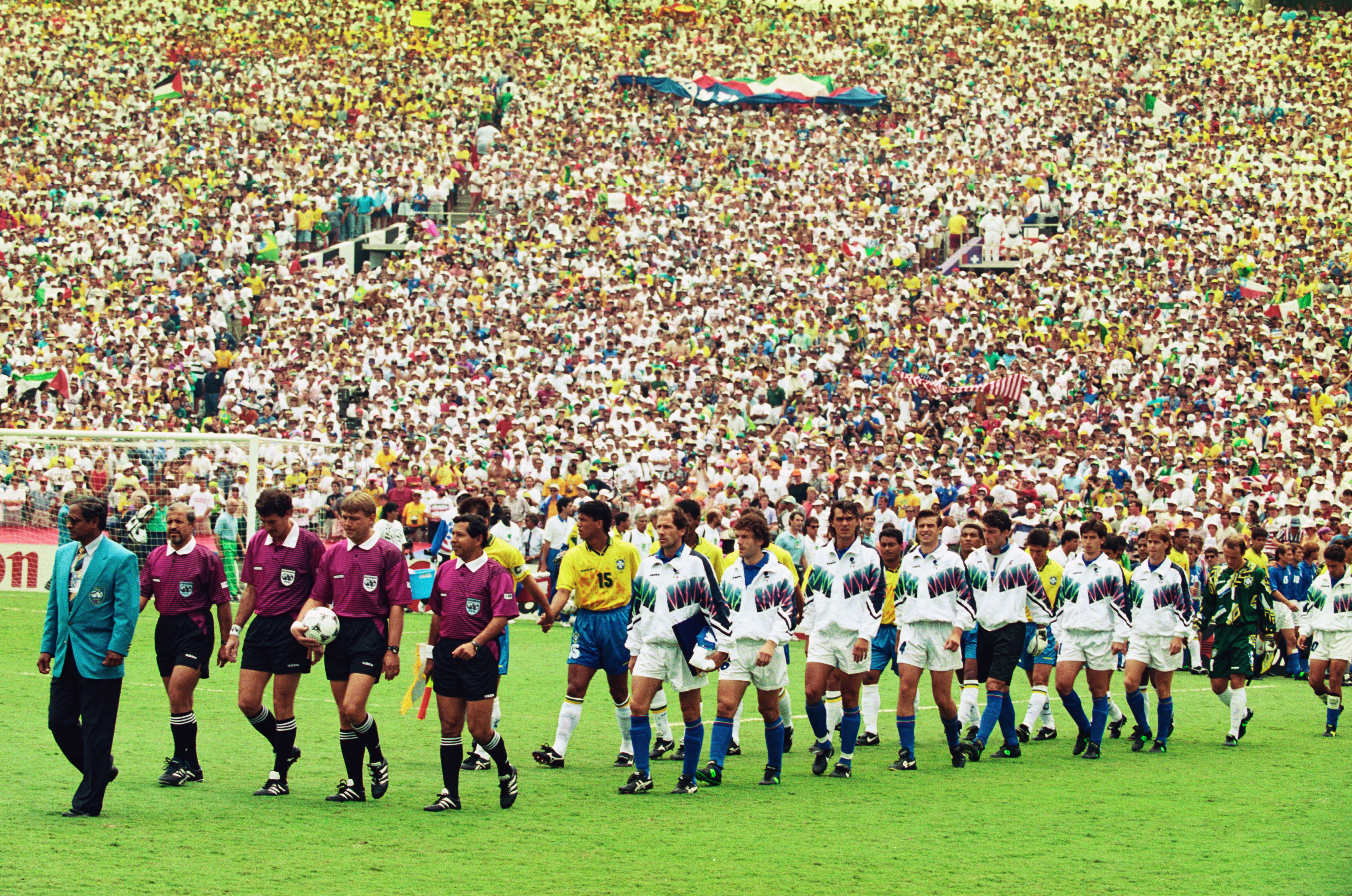
The 1994 World Cup final was the first without a goal and the first to be decided on penalties. It was also the first to take place in North America.
Brazil beat Italy 3-2 in the shootout as Roberto Baggio famously blasted his spot-kick over the bar in front of more than 94,000 fans at the Rose Bowl in Pasadena, California.
7. Soccer City, Johannesburg (2010)
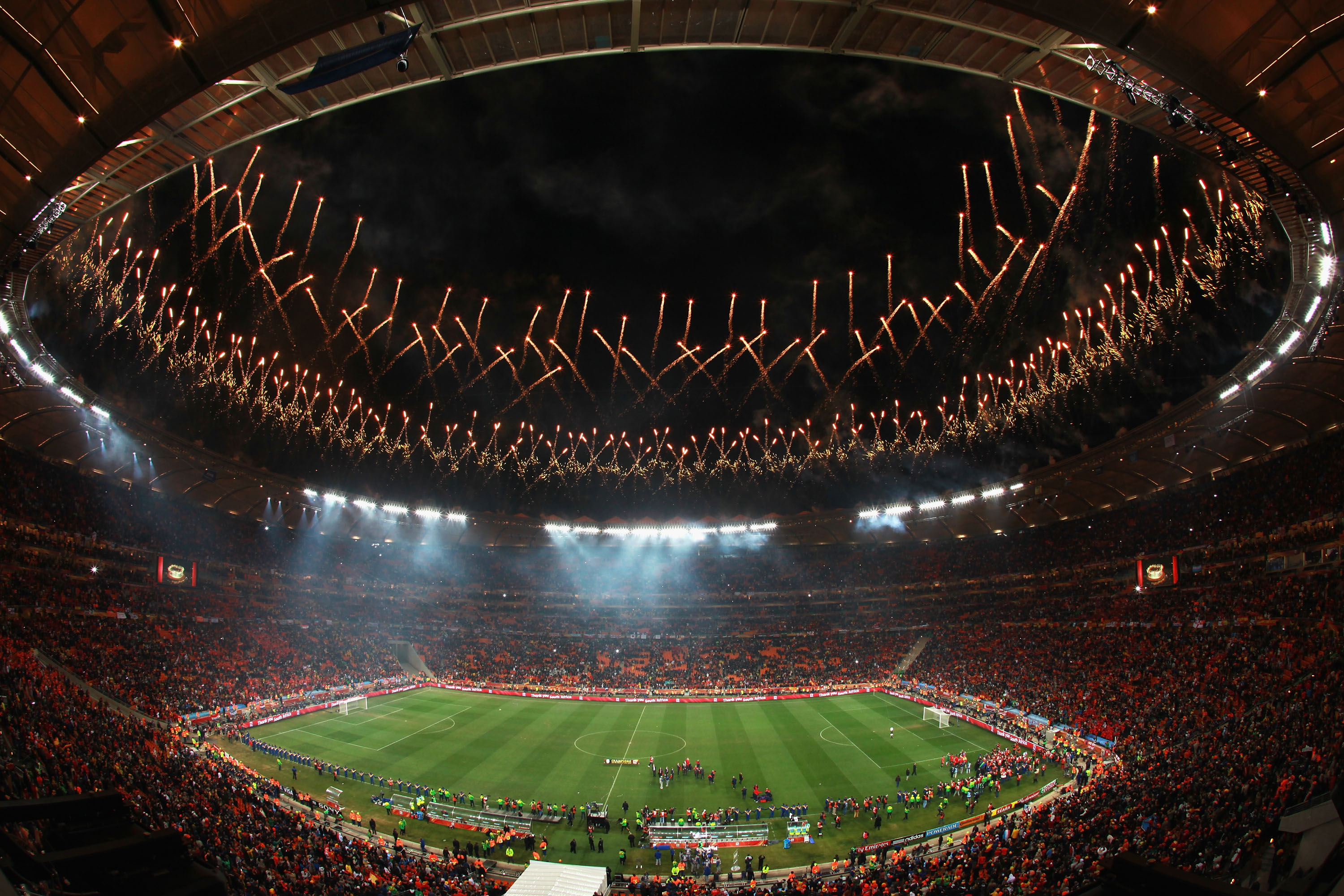
The World Cup was played in Africa for the first time in 2010, with the tournament hosted by South Africa and the final played at Soccer City in Johannesburg.
It was the scene for Spain's first-ever World Cup win as La Roja beat the Netherlands 1-0 in extra time, thanks to an Andrés Iniesta goal, in front of almost 85,000 fans.
6. Santiago Bernabéu, Madrid (1982)
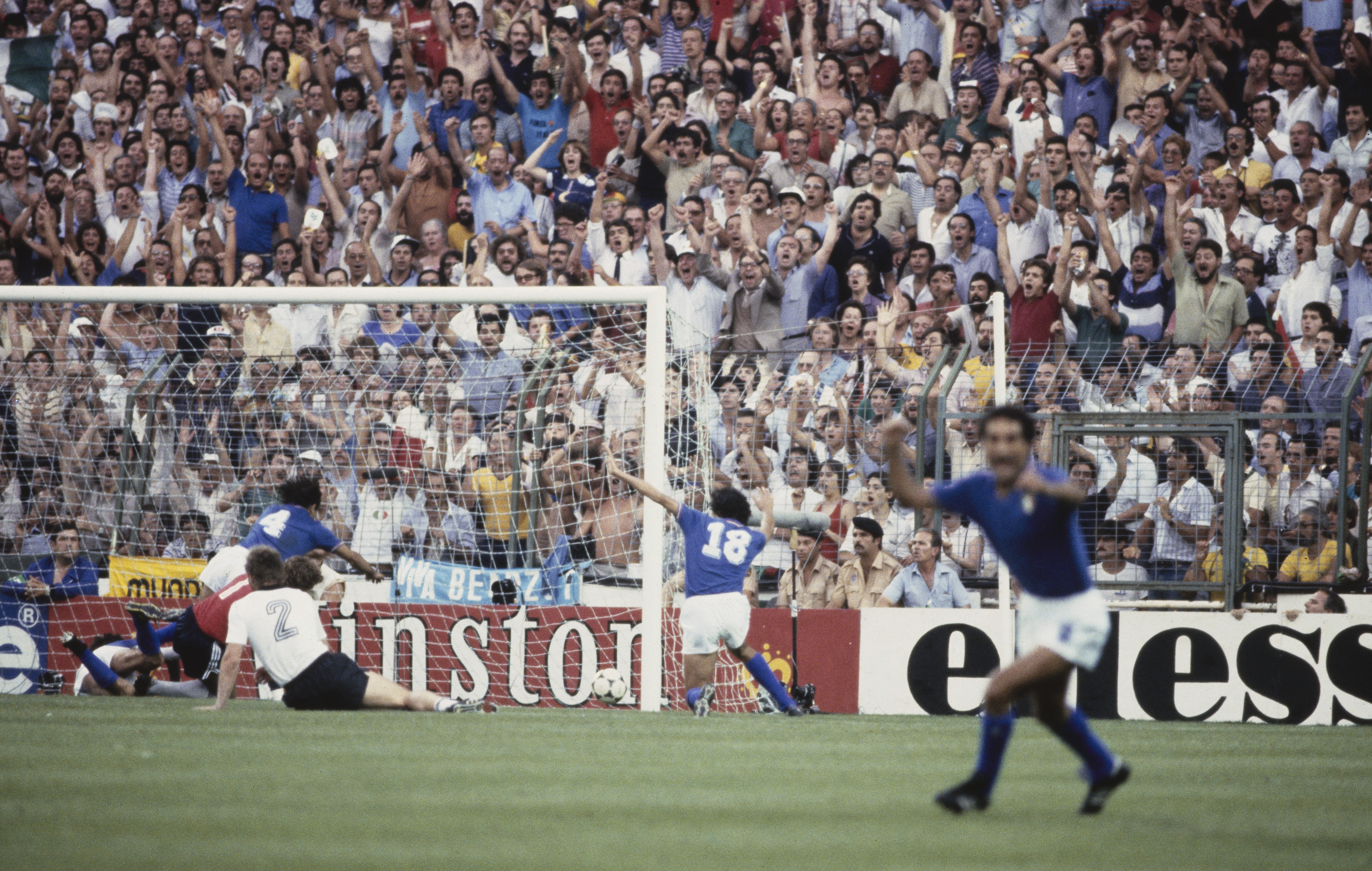
The Santiago Bernabéu is one of the great football stadiums and Real Madrid's famous home hosted the 1982 World Cup final.
In it, Italy followed up their epic 3-2 win over Brazil in Barcelona by beating West Germany 3-1 to claim the trophy for the third time – and a first since 1938 – in front of 90,000 fans.
5. Stade de France, Paris (1998)
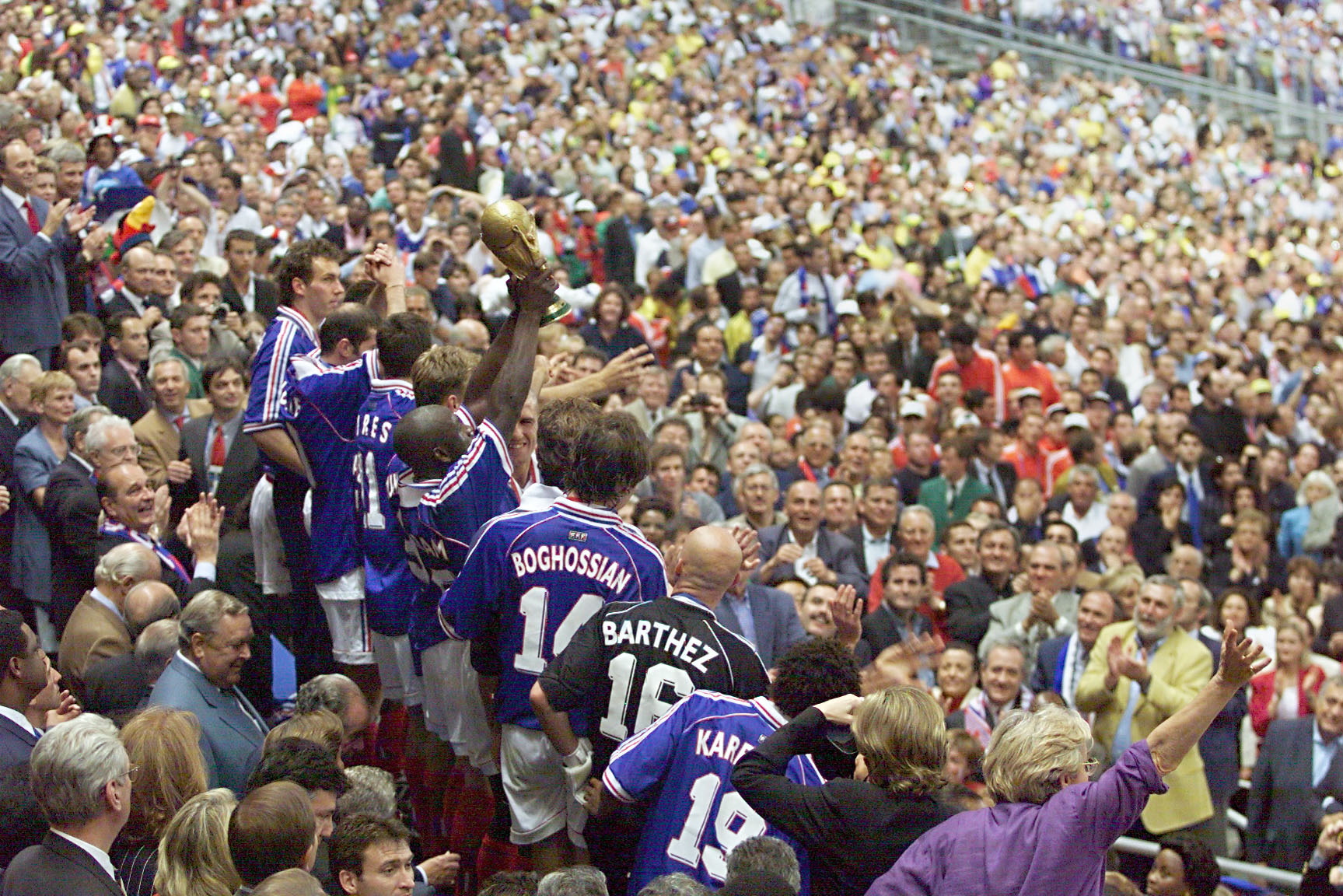
The Stade de France was built for the 1998 World Cup and opened six months before the tournament.
On July 12, it was the scene for the greatest night in the history of French football as Les Bleus beat Brazil 3-0 to claim a first-ever World Cup in front of 75,000 supporters.
4. Wembley Stadium, London (1966)
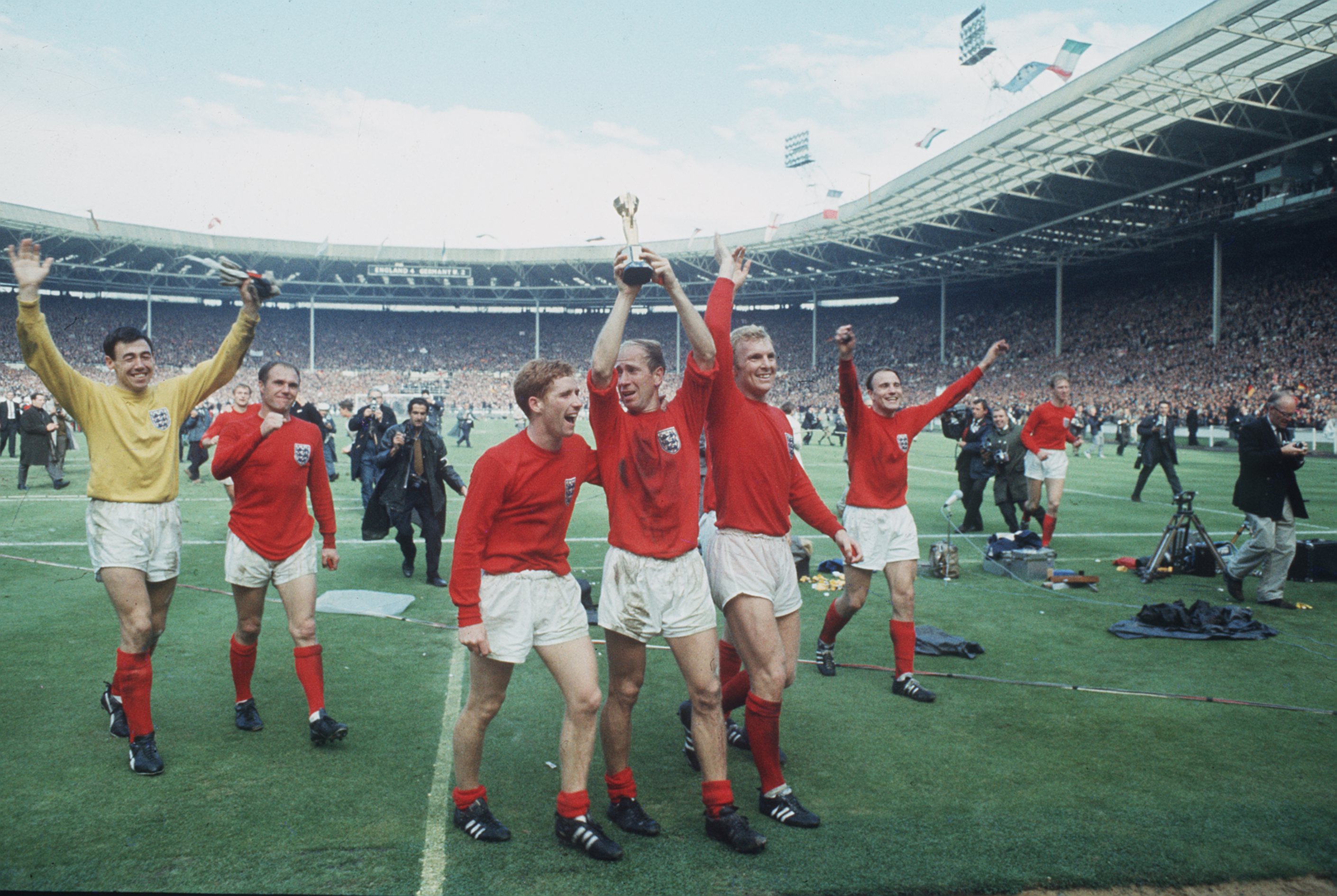
One of the most famous sporting arenas in the world, Wembley Stadium also bore witness to English (men's) football's finest hour: victory over West Germany in the 1966 World Cup final.
An official crowd of just under 97,000 watched at Wembley as Alf Ramsey's side won 4-2 after extra time, with Geoff Hurst scoring a hat-trick, including a controversial effort which almost certainly did not cross the line. Wembley was closed in 2000 and a new stadium built on the same site opened in 2007.
3. Lusail Stadium, Qatar (2022)
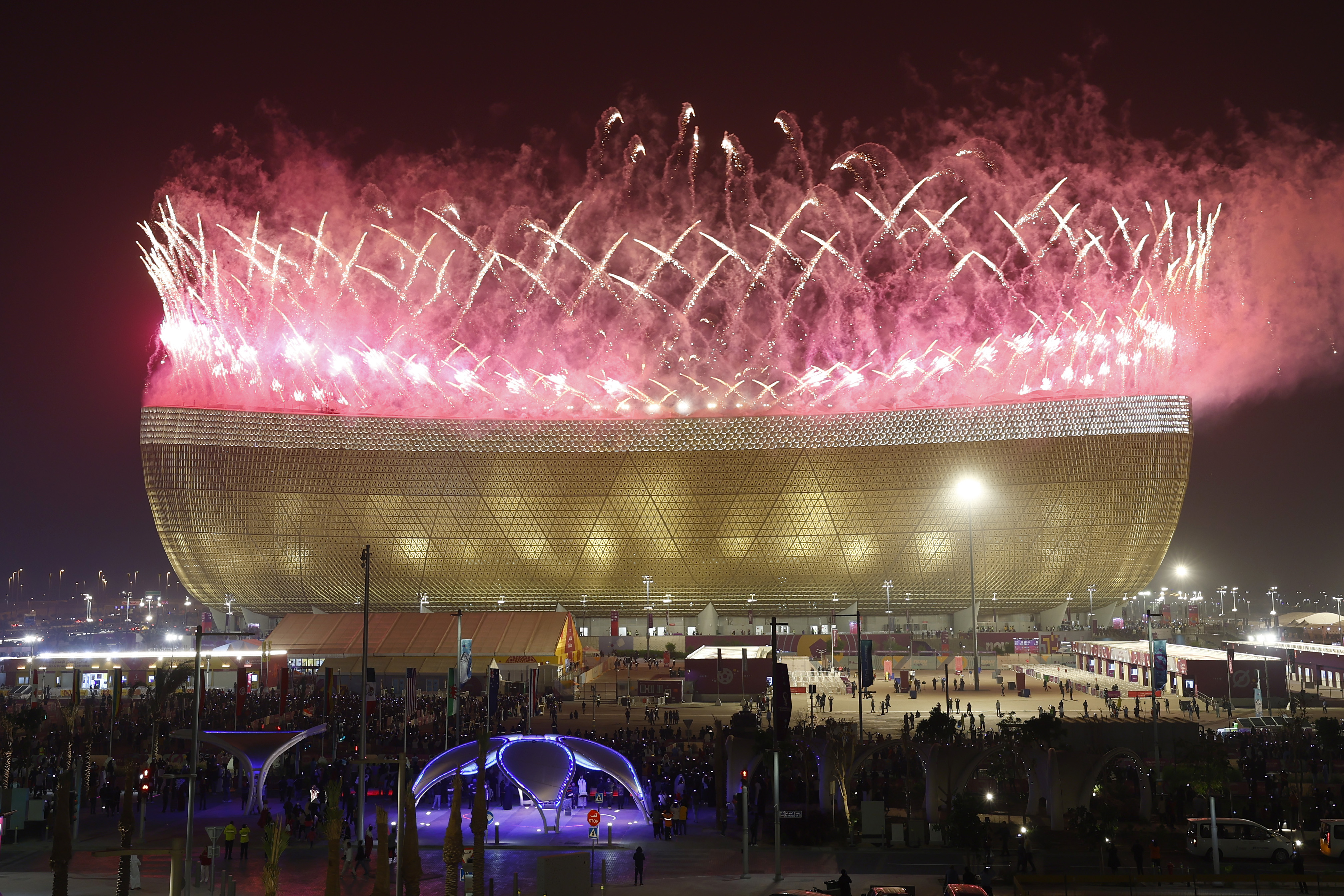
The Lusail Stadium in Qatar was the scene of Lionel Messi's crowning moment in football: Argentina's World Cup final win over France in 2022.
Just under 89,000 fans watched as the South Americans beat Les Bleus on penalties after a 2-2 draw in 90 minutes and a thrilling period of extra time in which both sides scored again. The first-ever winter World Cup final and a match to remember.
2. Maracanã, Rio de Janeiro (2014)
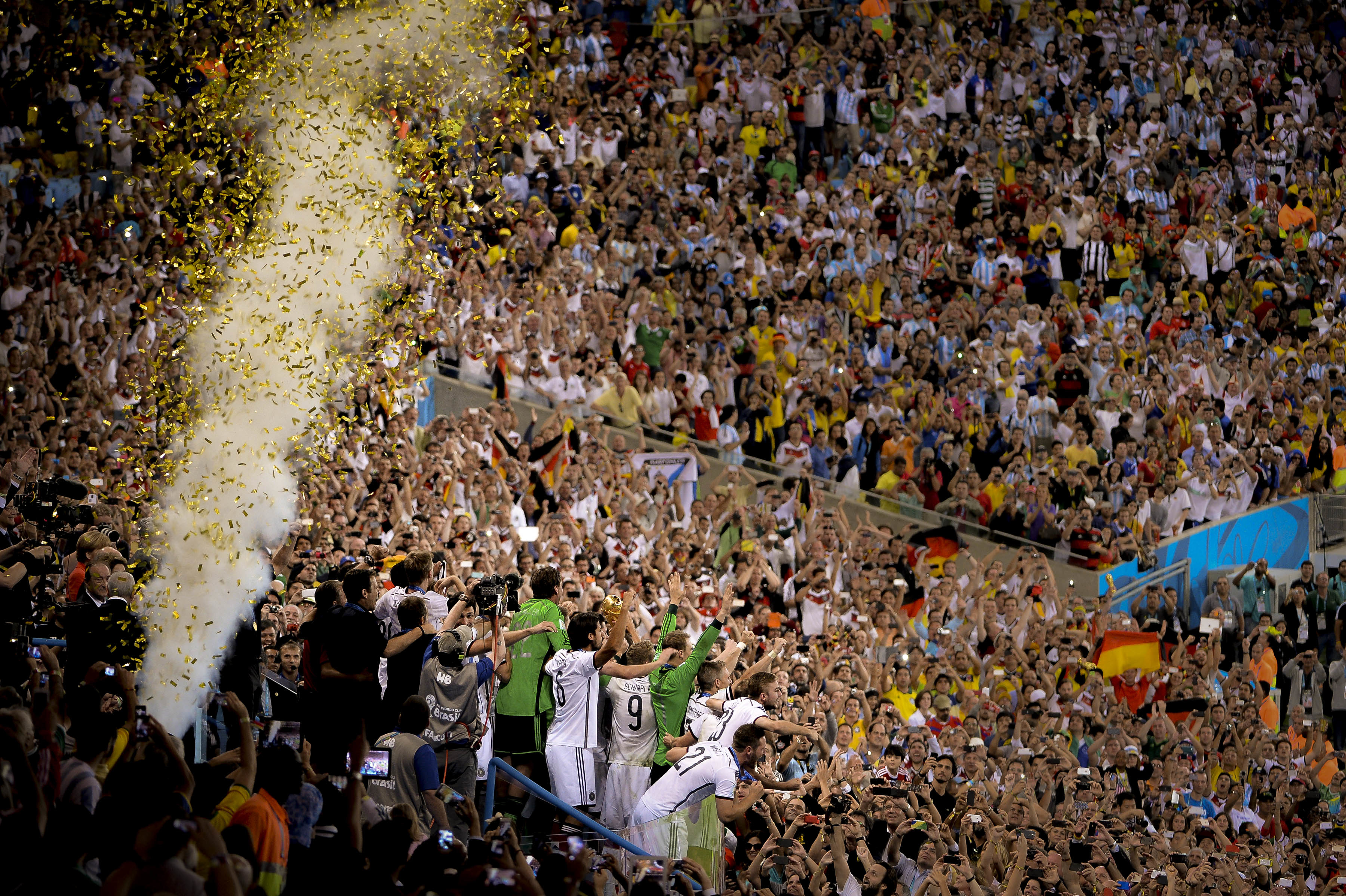
Technically, Rio de Janeiro's Maracanã Stadium has hosted just one World Cup final, with the 1950 tournament decided by a final group stage.
Brazil famously lost to Uruguay in the decisive fixture in 1950, which was a de-facto final, although the hosts had needed just a draw to win the trophy. That match, a shock 2-1 defeat for Brazil, became known as the Maracanaço. It was watched officially by over 170,000 fans, although it is thought that more than 200,000 were present. In the 2014 final at a remodelled Maracanã, Germany beat Argentina and Lionel Messi with a Mario Götze goal in extra time after a goalless 90 minutes.
1. Estadio Azteca, Mexico City (1970 and 1986)
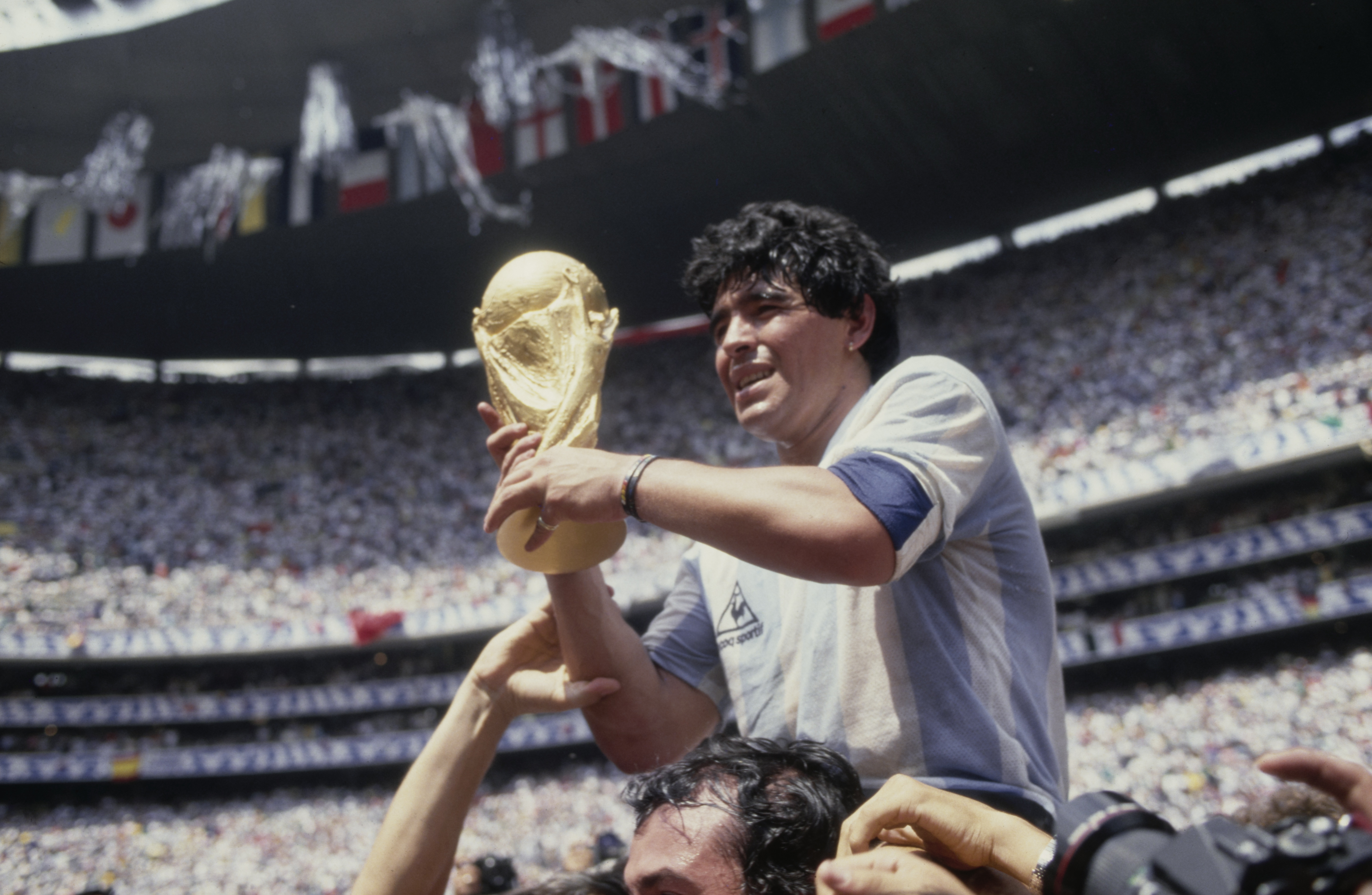
Mexico City's Estadio Azteca was built for the 1970 World Cup and hosted the final again in 1986.
The Coloso de Santa Úrsula ("Colossus of Santa Úrsula") welcomed more than 100,000 fans for those two matches and was witness to the finest moments in the careers of both Pelé and Diego Maradona, with the Brazilian legend winning his third World Cup there in 1970 and the Argentine great leading the Albiceleste to glory as captain in 1986. The Azteca will also host the opening game of the 2026 World Cup.







